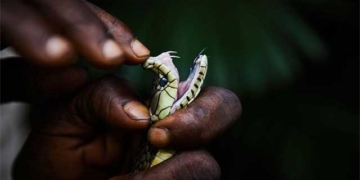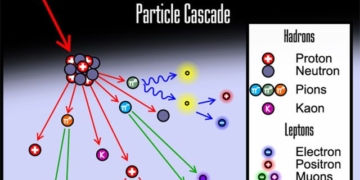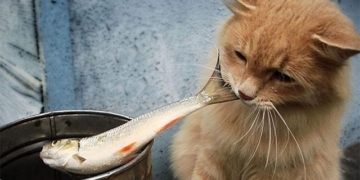Honeybees and chimpanzees can acquire complex skills from their peers, a capability once thought to be exclusive to humans.
The ability to transfer and enhance knowledge, experience, and skills across generations, known as “cultural accumulation”, is a distinctive trait of humans.
However, scientists have recently discovered that honeybees and chimpanzees possess this ability as well.
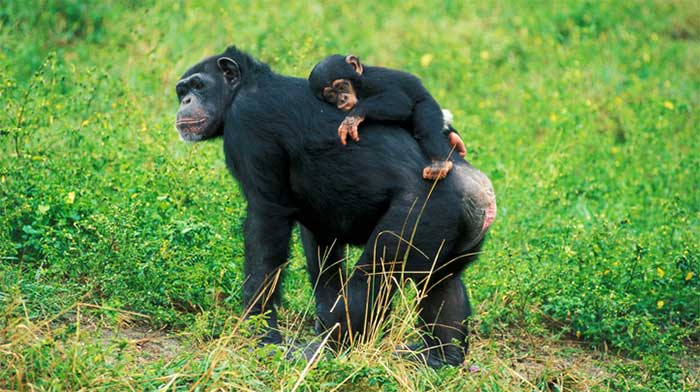
Human and chimp DNA is 98.8% similar – (Photo: ALAMY).
Mr. Lars Chittka, an ecologist specializing in animal behavior at Queen Mary University (UK) and the study’s author, explains: “Imagine leaving a few children on a deserted island. They might survive with a bit of luck, but they will never learn to read or write because these are skills that need to be taught by the previous generation.”
Previous experiments have demonstrated that some animal species are capable of social learning. This means they learn how to perform tasks by observing their peers, such as a young chimpanzee watching its mother crack nuts and imitating her.
However, this does not explain some of their more complex behaviors.
Initially, the research team from Queen Mary University trained several honeybees to solve puzzles they created. They referred to this group as the guiding honeybees.
They placed some honeybees in a laboratory and “gifted” them a puzzle box that required two steps to complete. Each bee’s task was to push a green part followed by a red part to reach a reward at the end of the box – a bit of sugar.
At first, the bees only focused on pushing the red part, which was blocked by the green part in front, and quickly gave up.
The scientists then placed a bit of sugar in the green part, prompting the bees to push that section before completing the rest of the task.
They gradually removed the “assistance” after noticing that the guiding honeybees had mastered the puzzle-solving technique.
Subsequently, they added the guiding honeybees to a group of new bees that were encountering the puzzle for the first time. As a result, 15 new bees quickly solved the puzzle without human assistance.
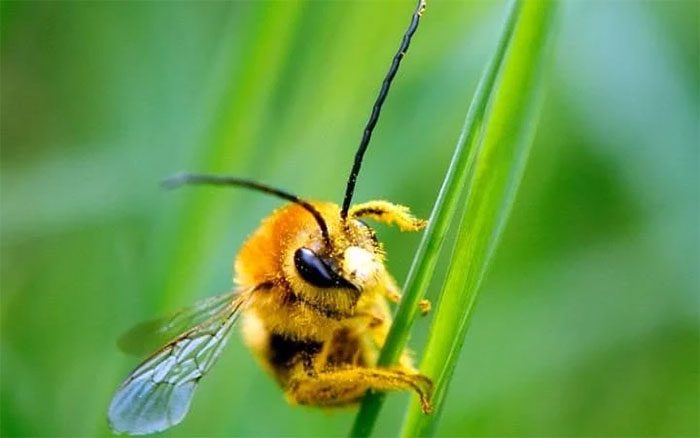
Honeybee.
This finding greatly surprised the research team. This is the first evidence of “cultural accumulation” capabilities in invertebrates.
The puzzle for chimpanzees was slightly more complex.
At the Chimfunshi Wildlife Orphanage in Zambia, scientists presented the chimpanzees with a wooden ball. Their task was to open a drawer, insert the ball inside, and retrieve a reward of peanuts.
Over three months, 66 chimpanzees attempted to solve the puzzle but failed. The research team then trained two chimpanzees to guide the others in solving the puzzle.
As a result, after two months, 14 chimpanzees had mastered the skill.
Mr. Alex Thornton, a professor of cognitive evolution research at the University of Exeter (UK), noted that these two cases once again demonstrate that “humans tend to overestimate their abilities compared to other animal species.”

















































